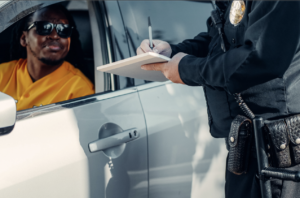Ads
Police personnel come in a variety of roles, each serving a unique purpose in the realm of law enforcement. From uniformed officers patrolling the streets to detectives solving crimes, there are nine distinct types of police officers that play a crucial role in maintaining public safety.
1. Policeman in uniform
The most recognizable police officer type is the policeman in uniform. Municipal police departments employ uniformed officers to respond to calls for assistance, document incidents, direct traffic, and investigate theft or vandalism. These officers can be seen walking, driving, riding a motorbike, or even on horseback patrolling a neighborhood or region. They interact with community members to build relationships and improve police-public relations. Whether patrolling alone or with a partner, uniformed officers play a vital role in enforcing laws and issuing citations to ensure the safety of the public.
2. Police chief
At the top of the law enforcement hierarchy is the police chief. Chiefs are the highest-ranking officials in police departments and are responsible for overseeing all department personnel, including uniformed officers. In smaller towns, police chiefs may respond to accidents and issue traffic citations, while in larger agencies, they focus on administrative tasks such as setting budgets, developing policies, and coordinating training programs. Police chiefs are often public-facing figures who attend events like parades and report to city officials such as the mayor or municipal manager.
3. State cop
State police officers, also known as state troopers or highway patrol officers, enforce state laws across various jurisdictions. Working for state police departments or law enforcement agencies, these officers patrol highways, investigate traffic accidents, and provide emergency assistance when needed. State police officers often collaborate with local law enforcement to ensure the safety and well-being of communities throughout the state.
4. PR officer
Police public information officers, or PR officers, serve as the liaison between law enforcement agencies and the media and public. These officers are responsible for crafting press releases, managing social media accounts, and responding to media inquiries to keep the public informed about law enforcement activities. PR officers work to improve transparency and accountability by establishing positive relationships with the media and coordinating community outreach programs to educate the public about the role of the police.
5. Detective
Detectives are specialized officers tasked with investigating crimes and gathering evidence to build cases. They work closely with uniformed officers to gather information at crime scenes, interview witnesses and suspects, and compile detailed reports for prosecutors. Detectives may specialize in a particular type of crime, such as fraud or homicide, and continue their education to stay up-to-date on the latest investigative techniques and technologies.
6. Transit cop
Transit officers are responsible for maintaining safety and security at train stations, bus terminals, and subways. They monitor public transportation areas to prevent theft, vandalism, and other crimes, as well as respond to incidents and accidents that occur on public transit. Transit officers collaborate with transit agencies and police special units to ensure the smooth operation of public transportation systems and protect passengers and employees.
7. Crime scene investigator
Crime scene investigators are trained professionals who collect, analyze, and document physical evidence at crime scenes. They work with detectives to piece together the details of a crime and provide valuable information for criminal investigations and prosecutions. Crime scene investigators often work for various law enforcement agencies, including local, state, sheriff’s, and federal authorities, using their expertise to solve complex criminal cases through the examination of DNA and other evidence.
8. School resource officer
School resource officers are police officers assigned to public schools to promote safety, address crime issues, and build positive relationships with students and staff. These officers investigate crimes that occur on school grounds, provide support for students in need, and collaborate with school administrators to implement programs that reduce crime and promote a safe learning environment. School resource officers play a crucial role in fostering trust and communication between law enforcement and the school community.
9. Victim advocate
Victim advocates are police officers who specialize in supporting and assisting crime victims in their recovery process. These officers provide victims with information about their rights, available services, and resources to help them navigate the criminal justice system. Victim advocates offer emotional support, assist with completing paperwork, and prepare victims for court proceedings, ensuring they are informed and supported throughout the often challenging legal process. Victim advocates may work for police departments, government agencies, non-governmental organizations, or social services agencies, serving as advocates for those who have experienced trauma and helping them access the assistance they need to heal and seek justice.
In conclusion, police officers play a critical role in maintaining law and order within communities. Whether patrolling the streets, investigating crimes, or supporting victims, each type of police officer contributes to the overall safety and well-being of society. By working together and utilizing their unique skills and expertise, these dedicated professionals help ensure that justice is served and communities are protected from harm.






